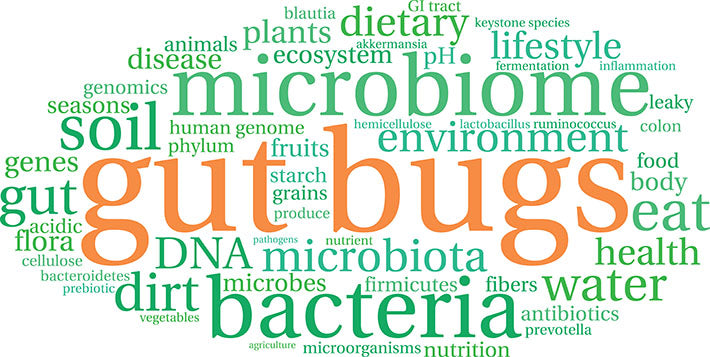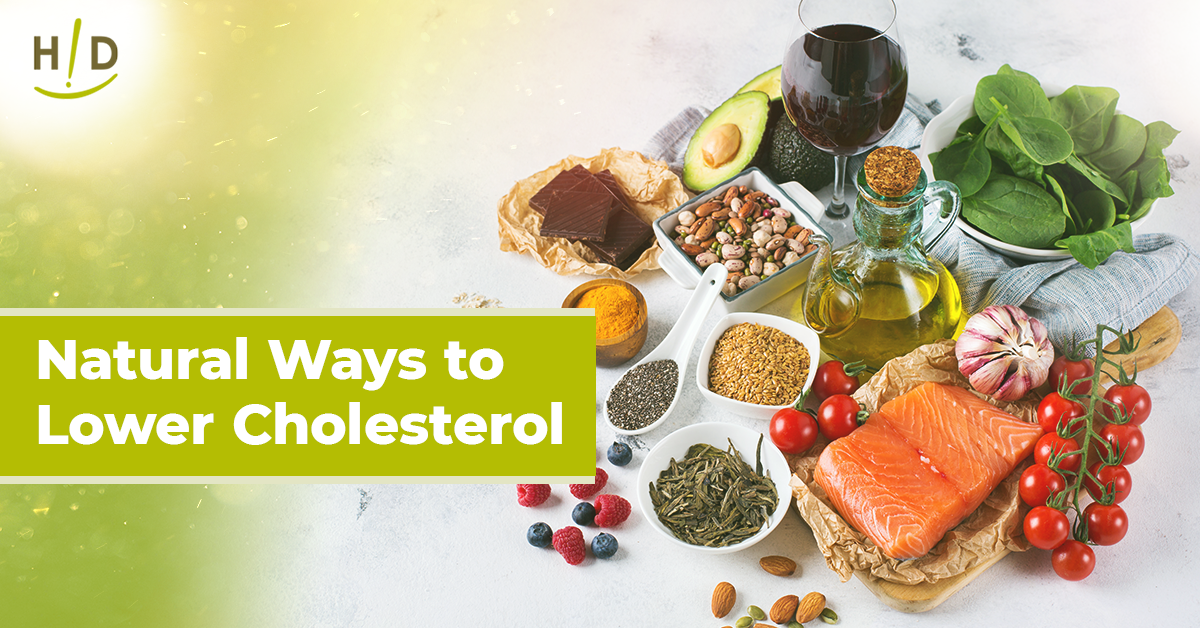As inconsequential as gas, heartburn, or occasional constipation may seem, these symptoms may point to a developing problem in your gut. Gut health has a tremendous bearing on the health of your body. The gut is like its own ecosystem, heavily dependent on a delicate balance of good and bad bacteria to function as it should. Since the health of the gut determines the health of your body, it’s worth making sure it has what it needs to thrive.
Prebiotics and probiotics support healthy gut function in different but, nonetheless, essential ways. Whether in food or supplement form, prebiotics and probiotics provide the digestive system with what it needs to protect the body from sickness and nourish the body with nutrients from the food you eat. Keep reading to see how prebiotics and probiotics do all this and so much more.
 While a healthy, plant-based eating lifestyle will nourish your digestive system, the older the body gets, the more support your gut needs to maintain a healthy level of prebiotic and probiotic materials. Probiotic supplements offer that added boost to help maintain digestive health.
Keep in mind, though, that unlike food, probiotic supplements don’t always make it through the digestive tract, as stomach acids tend to destroy these bacteria before they reach their destination.
If you’re considering probiotic supplements, HD Professional Strength Probiotics are formulated to withstand the harsh conditions in the stomach and coat the digestive tract as it should. A quality daily supplement offers an added layer of support to ensure your gut is as healthy as it can be. When combined with a healthy diet, your body will receive the level of nutrition it needs to function at its best.
While a healthy, plant-based eating lifestyle will nourish your digestive system, the older the body gets, the more support your gut needs to maintain a healthy level of prebiotic and probiotic materials. Probiotic supplements offer that added boost to help maintain digestive health.
Keep in mind, though, that unlike food, probiotic supplements don’t always make it through the digestive tract, as stomach acids tend to destroy these bacteria before they reach their destination.
If you’re considering probiotic supplements, HD Professional Strength Probiotics are formulated to withstand the harsh conditions in the stomach and coat the digestive tract as it should. A quality daily supplement offers an added layer of support to ensure your gut is as healthy as it can be. When combined with a healthy diet, your body will receive the level of nutrition it needs to function at its best.
Gut Bacteria - The Good and the Bad
Your gut houses an environment that contains a mix of good and bad bacteria, also known as the microbiome. Ideally, an 80/20 ratio of good bacteria to bad bacteria should be present. This ratio enables the gut to properly absorb nutrients from food and protect the body from harmful organisms that breed sickness and disease. When the bad bacteria outnumber the good, this imbalance weakens the body’s systems leaving you more susceptible to health problems like arthritis, allergies, digestive problems, depression, and heart disease. The good news is the foods you eat directly affect the balance of good to bad bacteria in your gut. You can create a healthy balance in two ways: by feeding the good gut bacteria and by increasing the number of good bacteria in your gut. This is where prebiotics and probiotics can help.Differences Between Prebiotics and Probiotics
What They Do
Prebiotics Prebiotics come from non-digestible plant fiber materials found in certain foods. When eaten, prebiotics work in much the same way as fertilizer does for seedlings, stimulating the activity and growth of the good bacteria in your gut. High-fiber foods contain lots of prebiotics, which is a big reason why high-fiber diets offer so many health benefits. Probiotics While prebiotics act as food for good gut bacteria, probiotics are good bacteria. Probiotics contain live organisms that are the same or closely similar to the good bacteria in your gut. When ingested, probiotics increase the number of good gut bacteria.Health Benefits
Since prebiotics act as food for good gut bacteria and probiotics are good bacteria, there’s little to no difference between prebiotics and probiotics, as far as health benefits go. The more the ratio of good to bad gut bacteria starts to favor the good bacteria, the better you’ll feel and the smoother your bodily systems will work. Health benefits that come from having a healthy population of good gut bacteria include:-
 Smooth digestion process, minus any gas, bloating, constipation, or diarrhea
Smooth digestion process, minus any gas, bloating, constipation, or diarrhea - Healthy nutrient absorption from food
- Optimal immune system functioning
- Help normalize blood pressure levels
- Balance hormone levels
- Improve mood and mental functioning
Food Sources
Prebiotics While prebiotics do come from plant-based fiber, not all fiber contains prebiotics. As a non-digestible fiber, these materials are able to pass through the digestive system and become food for the good gut bacteria. Fruits and vegetables contain high levels of prebiotics, especially when eaten raw. These include foods like garlic, asparagus, bananas, onions, beans, lentils, dark leafy greens, and chickpeas. Probiotics Foods containing high levels of probiotics include fermented and sour vegetables, such as sauerkraut, tempeh (fermented soybeans), kimchi (fermented cabbage and vegetables, pickled vegetables, and natto (another fermented soybean dish). While the heat required for cooking does tend to lessen the nutritional value of plant-based foods, you can still gain valuable health benefits from cooked probiotic foods. Your digestive system contains a wide variety of good bacteria. For this reason, it’s best to eat a healthy mix of probiotic foods. This way, your gut will benefit from as many good bacteria strains as possible.Probiotic Supplements for an Added Boost
 While a healthy, plant-based eating lifestyle will nourish your digestive system, the older the body gets, the more support your gut needs to maintain a healthy level of prebiotic and probiotic materials. Probiotic supplements offer that added boost to help maintain digestive health.
Keep in mind, though, that unlike food, probiotic supplements don’t always make it through the digestive tract, as stomach acids tend to destroy these bacteria before they reach their destination.
If you’re considering probiotic supplements, HD Professional Strength Probiotics are formulated to withstand the harsh conditions in the stomach and coat the digestive tract as it should. A quality daily supplement offers an added layer of support to ensure your gut is as healthy as it can be. When combined with a healthy diet, your body will receive the level of nutrition it needs to function at its best.
While a healthy, plant-based eating lifestyle will nourish your digestive system, the older the body gets, the more support your gut needs to maintain a healthy level of prebiotic and probiotic materials. Probiotic supplements offer that added boost to help maintain digestive health.
Keep in mind, though, that unlike food, probiotic supplements don’t always make it through the digestive tract, as stomach acids tend to destroy these bacteria before they reach their destination.
If you’re considering probiotic supplements, HD Professional Strength Probiotics are formulated to withstand the harsh conditions in the stomach and coat the digestive tract as it should. A quality daily supplement offers an added layer of support to ensure your gut is as healthy as it can be. When combined with a healthy diet, your body will receive the level of nutrition it needs to function at its best.





